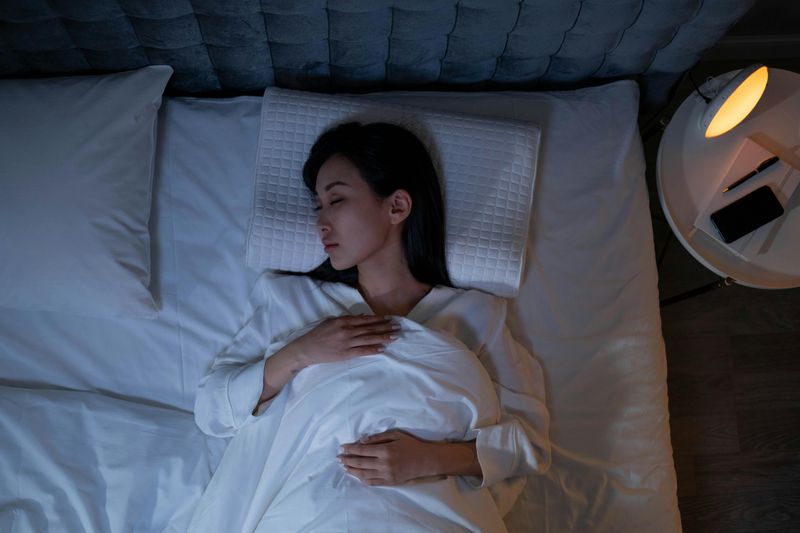Being single often gets a bad rap in our society. Many people view it as a temporary phase before finding ‘the one.’ However, research suggests that flying solo comes with numerous advantages that might make you reconsider your relationship goals. Scientists have discovered some fascinating benefits to single life that extend beyond freedom to choose what’s on TV tonight.
1. Staying Trim and Motivated

Single people often maintain healthier bodies, and it doesn’t always require major effort. Without the temptation of constant pizza nights or skipping workouts to cuddle, they are more likely to stick to active routines.
Research from the University of Basel found that couples, on average, have higher body mass index and participate in fewer sports compared to singles. This suggests single individuals are more likely to prioritize their health and stay physically active.
Cooking for one also encourages smaller portions and more mindful eating choices. Altogether, these habits support a healthier lifestyle and reduce the risk of “relationship weight gain.”
2. Richer Social Connections

Freedom from romantic commitments creates space for a wide range of friendships to thrive. Research in the Journal of Social and Personal Relationships shows that singles typically maintain larger, more diverse social networks than those who are partnered.
Without a significant other absorbing most of your time, you’re more inclined to reconnect with old friends, join community groups, or say yes to coworker invitations. These connections broaden perspectives and expand sources of emotional support.
Singles also tend to nurture closer relationships with parents and siblings, strengthening family bonds. Together, this social variety builds a resilient and reliable support network.
3. Lower Alcohol Consumption

Research from the University of Michigan found that married women consume more alcohol than their single or divorced counterparts. This challenges the assumption that single people are more likely to overindulge.
Without the social pressure of couple-centered gatherings or the stress that can come with romantic commitments, singles often make more moderate drinking choices. Living alone also encourages mindful habits, since there’s no partner to match drink for drink.
Many single people replace alcohol-focused outings with fitness classes, outdoor adventures, or creative hobbies. These healthier patterns support overall wellbeing, sharper focus, and more balanced decision-making in daily life.
4. Career Resilience and Flexibility

Job loss is tough, but singles often recover more quickly than those with families. Without children or spouses tying them to specific locations, they can relocate for promising opportunities without complicated negotiations.
Employers may also view unmarried candidates as especially suited for roles requiring travel, overtime, or schedule flexibility. Research, including studies from the University of Chicago, shows that single individuals bounce back faster after career setbacks because they can focus entirely on professional rebuilding.
This freedom makes it easier to pursue entrepreneurial ventures, internships, or advanced education. Over time, those bold career moves create lasting advantages in both stability and income.
5. Quality Sleep Without Compromise

Remember that commercial where the couple struggles with different mattress preferences? Singles avoid this problem completely. Sleeping solo means enjoying the entire bed, controlling the temperature, and sticking to your perfect sleep schedule.
Research from the Sleep Foundation shows that people who share beds experience about 50% more disturbances than those who sleep alone. Without a snoring partner, a blanket thief, or constant midnight bathroom trips, your REM cycles remain uninterrupted.
High-quality rest strengthens immune defenses, improves memory, and stabilizes mood, and many singles report waking up more energized simply because they can follow their body’s natural sleep rhythm.
6. Financial Freedom and Stability

Money disagreements are a leading cause of relationship stress, with financial experts estimating they contribute to nearly one-third of breakups. Singles sidestep this conflict entirely, since their financial decisions remain theirs alone.
That means no debates about spending priorities, savings goals, or lifestyle compromises. While singles do cover housing expenses on their own, they save significantly on relationship costs like date nights, anniversary gifts, or joint purchases that aren’t truly needed.
Research from the Bureau of Labor Statistics shows singles often direct more money toward retirement savings and investments. Financial independence also builds confidence, creating long-term security on individual terms.
7. Consistent Physical Activity

Singles really do move more, and the science backs it up. A study in the Journal of Marriage and Family found unmarried adults engage in significantly more physical activity compared to married people.
Without the need to coordinate schedules or compromise with a partner, singles often maintain more consistent exercise routines. Living alone also naturally builds in extra movement, from handling all household chores to walking more places independently.
Many singles turn to physical activity as both stress relief and a way to expand their social lives. Hiking groups, dance classes, and recreational sports provide connection while reinforcing lasting fitness habits.
8. Self-Reliance and Problem-Solving Skills

When the sink leaks at midnight, singles don’t have the option of handing the problem to a partner—they figure it out themselves. This kind of everyday independence builds strong problem-solving skills and genuine confidence.
Psychological research shows that single people often develop greater adaptability and resilience when facing life’s inevitable challenges. Managing obstacles without outside help fosters mental toughness that benefits both personal and professional growth.
These qualities extend beyond home life as well. In the workplace, employers value the initiative, resourcefulness, and self-sufficiency that naturally grow when you’re used to managing life on your own terms.
9. Peaceful Home Environment

Imagine walking into your home and finding everything exactly as you left it. For singles, that peaceful predictability is an everyday reality. Without conflicts over chores, decorating styles, or daily habits, they enjoy living spaces that fully support their own needs.
Research presented by the American Psychological Association shows that singles often report lower daily stress levels in their home environments compared to married individuals.
Coming home to a space that reflects only your preferences creates a genuine sanctuary for recharging. Many singles describe their homes as peaceful retreats, free from negotiation, and perfectly designed to nurture mental wellbeing.

Comments
Loading…